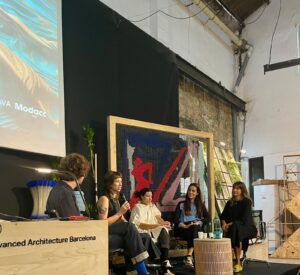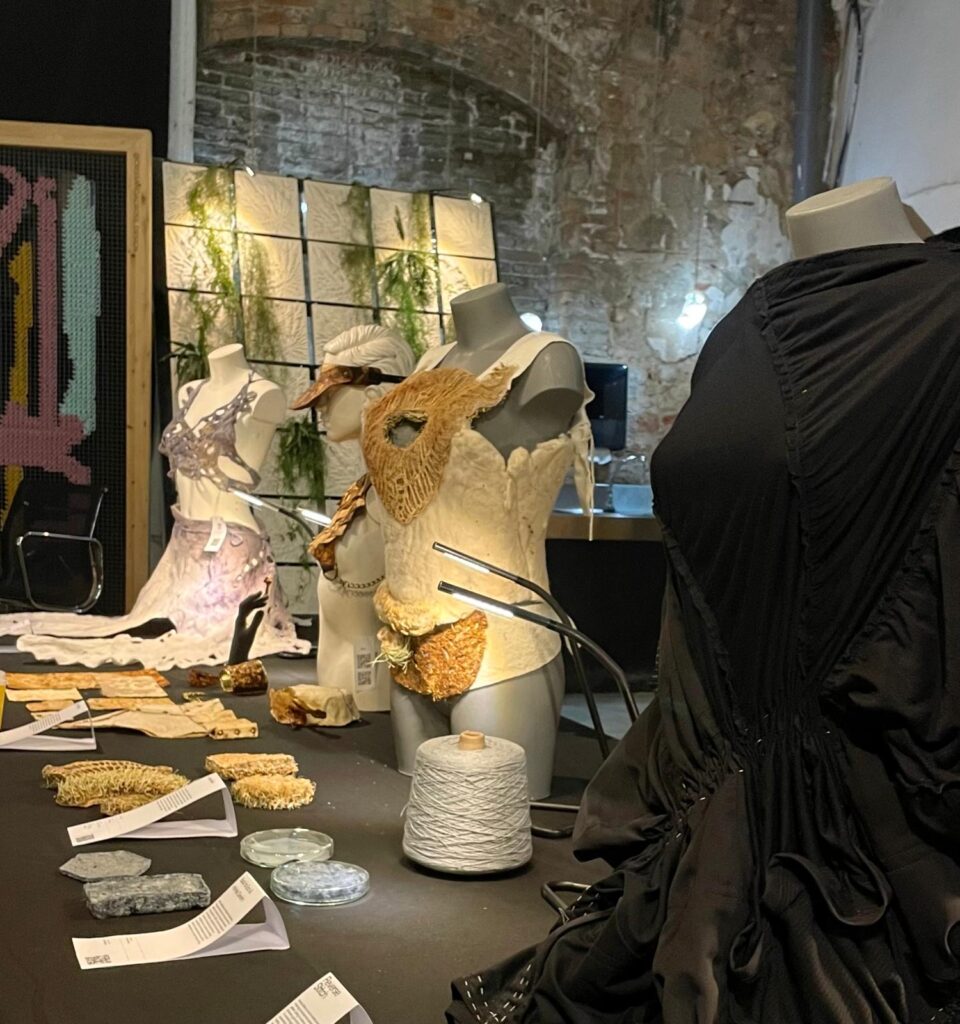As part of Barcelona Design Week 2024, the Transitions project successfully hosted the event “Soft Confluences of the Textile and Fashion Industry”, focusing on three key themes: water consumption, circular economy, and advanced technologies.
Organized by Fab Lab Barcelona in collaboration with Elisava Research, and Modacc, the event brought together researchers, companies, and educational institutions to discuss how Industry 4.0 and sustainability are being addressed by local and international stakeholders. Through insightful presentations and discussions, attendees gained valuable knowledge on sustainable practices and emerging trends in the textile and fashion sector.
The conference featured a diverse lineup of speakers who shared their expertise on the latest developments in sustainability and digital transformation. Discussions highlighted the potential of circular economy strategies in reducing waste and promoting resource efficiency. Additionally, the role of technology in reshaping textile manufacturing and fashion production was extensively explored, emphasizing digital fabrication, automation, and eco-friendly materials.
Experts from various organizations provided case studies and real-world examples of how businesses can integrate sustainability into their operations. Attendees engaged in thought-provoking conversations about the future of textile and fashion, the challenges of implementing circular business models, and the importance of fostering cross-sector collaboration to drive systemic change.
Participants had the opportunity to exchange ideas, explore innovative solutions, and establish new collaborations within the sector. The event facilitated meaningful discussions that contributed to a better understanding of sustainability challenges and technological advancements in textile and fashion. Attendees left with actionable insights and potential partnerships to drive positive change in their respective fields.
Moreover, the event strengthened connections between industry professionals, researchers, and policymakers, fostering a collaborative ecosystem that supports innovation in sustainability. Attendees gained deeper insights into regulatory frameworks and incentives available for businesses transitioning toward circular economy models.
Networking opportunities allowed participants to connect with like-minded professionals, paving the way for future collaborations and initiatives aimed at accelerating the transition to a more sustainable fashion and textile industry.
The conference reaffirmed the significance of integrating sustainability and digital transformation within the industry, showcasing pioneering efforts and encouraging further research and development. The exchange of ideas and experiences provided attendees with practical knowledge they could apply in their own organizations and projects.

